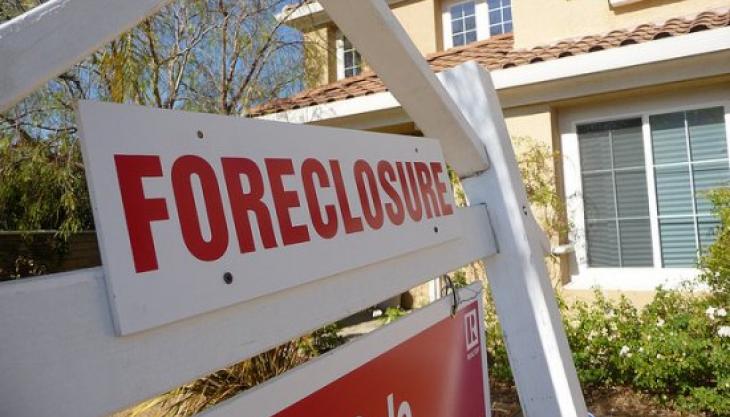Lost Your Home to Foreclosure? Your Trouble May Just Be Starting
Submitted by Rachel R on Wed, 04/15/2015 - 11:13am

There may be more trouble waiting after foreclosure
Image Source: Flickr User Jeff Turner
Owning a home is a great source of pride for many and losing it to foreclosure can be devastating. For most homeowners that end up in foreclosure, there's a major life event to blame for this circumstance. It may be a divorce, prolonged unemployment, debilitating accident, long-term illness or another incident that caused either a significant increase in expenses or a substantial decrease in earnings. If your financial situation does devolve to the point of a foreclosure, you may think losing your home is the worst thing that can happen to you. Unfortunately, it's not.
Things can get worse after a foreclosure
Getting hit with a foreclosure and having to leave your home can feel like rock bottom, but what you may not know is that things can get worse financially even after you surrender the property. Once you move and your new address reaches your creditors' collection branch, you may see notices begin arriving within six months to a year after you relinquish the property and move. These collection activities may be initiated by your mortgage insurer or mortgage lender and are known as a deficiency judgment.
What is a deficiency judgment?
A deficiency judgment may result if the amount that your home sells for at foreclosure auction is less than the mortgage balance owed. A deficiency is often the case, but not every lender will bother pursuing the shortfall. The problem is, you won't know they've decided to pursue it until the collection letters start. For instance, if your mortgage balance at the time of foreclosure was $150,000, but your home sold for just $90,000 at auction, the lender can claim a deficiency balance of $60,000. The lender or insurer may choose to pursue you for this shortfall between your loan balance and what the property sold for even though it was the mortgage company itself that likely purchased the property.
Limitations on deficiency judgments
There are some limits on when and how much the lender can collect on mortgage shortfalls after a foreclosure. First, a deficiency judgment is not allowed in the case of a purchase money mortgage - this is fancy terminology from an owner-financed mortgage. For instance, if you buy directly from the property owner and they self-finance by letting you rent to own with no bank or financial institution as an intermediary, the owner cannot pursue you for any deficiency.
You can also fight the amount of the mortgage deficiency if you can show that the fair market value of the property is greater than the sales price the home sold for at auction. For example, consider if you owe $150,000 on the property at the time of the foreclosure, it sold for $90,000 at auction, but the property is worth $130,000. Instead of a $60,000 deficiency, you can fight to have it declared at just $20,000 ($150,000 loan balance minus - $130,000 fair market value).
Getting rid of deficiency judgments
There are other limitations on pursuing deficiency judgments in North Carolina related to the type of residence, home equity lines of credit, construction loans, reverse mortgages, nontraditional mortgages and other circumstances. The best way to find out if your mortgage is at risk for a deficiency judgment is to talk with a financial professional such as an experienced bankruptcy attorney. In addition to a standard mortgage, other debts that had your property as collateral - such as a second mortgage - may result in collections activities
The best way to get a clean financial slate and a fresh start after a foreclosure is to file a Chapter 7 bankruptcy and void out any deficiency judgments and allow you to rebuild your credit more rapidly. Also, a fresh start like this can shorten the wait for when you can purchase your next home and get back to the satisfaction of home ownership.
Contact the law offices of John T Orcutt to speak to a North Carolina bankruptcy expert today. Call +1-833-627-0115 for an appointment at our offices in Greensboro, Raleigh, Fayetteville, Wilson, Durham or Garner. Be sure to ask about our zero down bankruptcy specials!
Debts Hurt! Got debt? Need help? Get started below!
Serving All of North Carolina
- Bankruptcy Attorneys Raleigh NC (North)
- Bankruptcy Attorney Fayetteville NC
- Bankruptcy Attorney Durham NC
- Bankruptcy Attorneys Wilson NC
- Bankruptcy Attorneys Greensboro NC
- Bankruptcy Attorneys Southport NC
- Bankruptcy Attorneys Wilmington NC
Bankruptcy Attorneys Raleigh NC (North)
6616 Six Forks Rd #203 Raleigh, NC 27615 North Carolina
Tel: (919) 847-9750

Bankruptcy Attorney Fayetteville NC
2711 Breezewood Ave Fayetteville, NC 28303 North Carolina
Tel: (910) 323-2972

Bankruptcy Attorney Durham NC
1738 Hillandale Rd Suite D Durham, NC 27705 North Carolina
Tel: (919) 286-1695


Bankruptcy Attorneys Greensboro NC
2100 W Cornwallis Dr. STE O Greensboro, NC 27408 North Carolina
Tel: (336) 542-5993

Bankruptcy Attorneys Southport NC
116 N Howe St. Suite A, Southport, NC 28461 North Carolina
Tel: (910) 218-8682

Bankruptcy Attorneys Wilmington NC
116 N. Howe Street, Suite A Southport, NC 28461 North Carolina
Tel: (910) 447-2987
